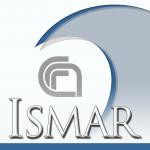INSTITUTO DI SCIENZE MARINE (ISMAR)

Overview
The Institute of Marine Science (ISMAR) is part of the National Research Council of Italy (CNR), the largest research body in Italy, which is distributed all over the territory through a network of Institutes. ISMAR is among the leading marine research institutions in Italy. With its headquarter in Venice and five regional sections spread across the Italian peninsula, it hosts a staff of 201 marine scientists with permanent position, and 60 people in training (PhD students, postdoctoral research assistants). Researchers at ISMAR conduct studies in Mediterranean, oceanic and polar regions on a wide range of topics dealing with biogeochemical cycles and ocean productivity, habitat mapping and marine ecology, marine pollution and human impacts on coastal and lagoon ecosystems, microbial ecology, physical oceanography and modelling, marine spatial planning and ecosystem services, natural processes and hazards.
ISMAR (Venice) provides TA services for ASSEMBLE Plus, for which SZN is the Italian partner.
Ecosystems
- Rocky and soft-bottom benthic and pelagic Adriatic ecosystems
- Lagoons
- Tidal mudflats
- Polluted sites (Venice-Mestre) near pristine sites for comparative impact studies
Ecosystem access
- Coastal research vessels (On-site service)
- Small research vessels and boats for coastal sampling, with high resolution multibeam
- Sampling equipment (On-site service)
- Sampling equipment for collecting water and sediment samples across a range of marine habitats (grab samplers, box-corers, multiparametric probes, phytoplankon and zooplankton nets)
- Other ecosystem access (On-site service)
- Fixed-point observatory, oceanographic tower Acqua Alta (an offshore facility equipped with autonomous instrumentation and laboratories, that can accommodate scientists at sea for days)
Biological resources
- Species collected upon request (On-site service)
- From the Lagoon of Venice and North Adriatic coasts
Experimental facilities
- Aquaria and tanks (On-site service)
- Room with flowing filtered seawater aquaria, regulated photoperiod illumination, temperature-controlled
- Dry labs (On-site service)
- Benthos
- Plankton (phyto and zoo with stereo, light, inverted microscopes)
- Microbial and molecular ecology (epi-fluorescence with image analysis, hood, basic molecular equipments, centrifuges)
- Ecotoxicology (spectrophotometer, fluorometer, microtoome, cryostat, equipment for bioassays and biomarkers)
- Chemistry (clorophylls, nutrients, heavy metals, organic contaminants PCBs, PAHs)
- Radiochemistry (liquid scintillation counting of C14 and 3H for primary and secondary production)
- Climate controlled rooms (On-site service)
- Climate-controlled room and chamber, and a cold room
Technology platforms
- Imaging (On-site service)
- Continuous underwater video recording on LTER Acqua Alta tower
- Structural and chemical analysis (On-site service)
- HPLC
- GC-MS
- Inductively-coupled plasma atomic emission spectrometer (ICP-AES)
- Atomic absorption spectrophotometer
- Remote sensing and telemetry (Remote service)
- Acquisition, processing and operational production of bio-gechemical paramters derivied from ocean colour sensors
- Other technology platforms (On-site service)
- High-resolution multibeam for habitat mapping
E-services
- Data sets (Remote service)
- Satellite data products on chlorphyll, phytoplankton size and classes, water transparency
- Lagoon and Acqua Alta oceanographic tower – long-term hydrological and biological data (over 30 years), algal herbarium "Algarium Veneticum” (historical and modern algal samples and digitalized version), repository of the Historical Library and Cartotheque of the Adriatic Sea
Expert advice
- Biological sample identification (On-site service)
- Benthos, phytoplankton, zooplankton
- Other expert advice (On-site service)
- Marine Spatial Planning, decision-support systems, conflicts/synergies analyses and cumulative impact assessments
- Assessment and mapping of ecosystem services
- Underwater video image analysis (plankton organisms and habitat mapping)
- Stable isotopes experimental design, data analysis and interpretation for food web studies
- Remote sensing data analysis
- Biomonitoring (including active and passive bioassays)
Amenities include lunch restaurants and conference and lecture facilities. ISMAR provides no in-house lodging, but numerous restaurants, hotels and B&Bs are within walking distance. Administration assists with hotel reservations.


